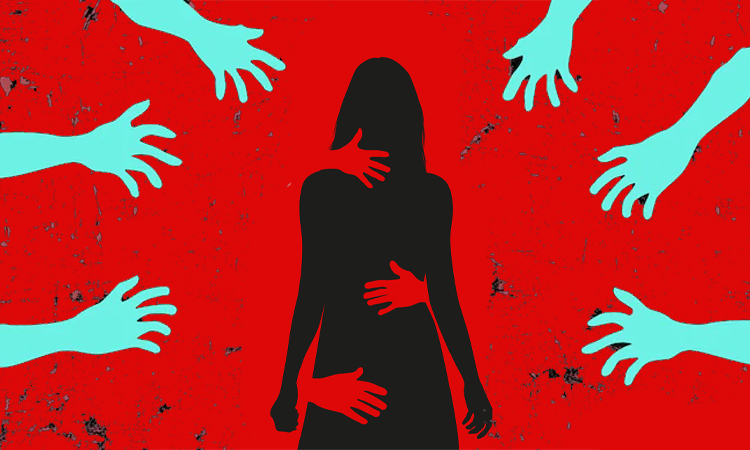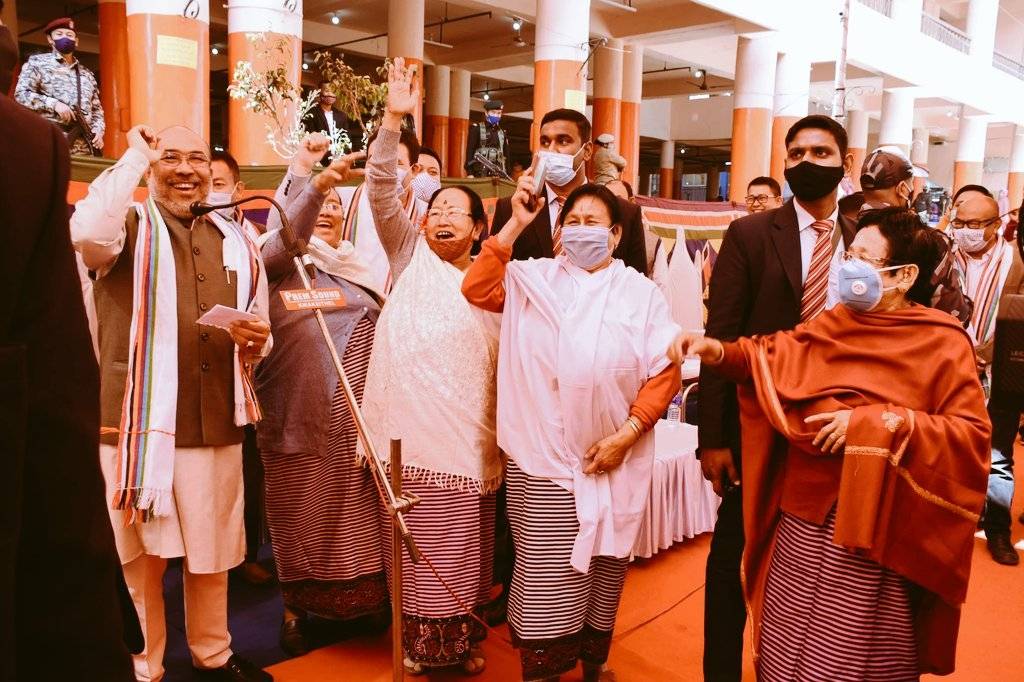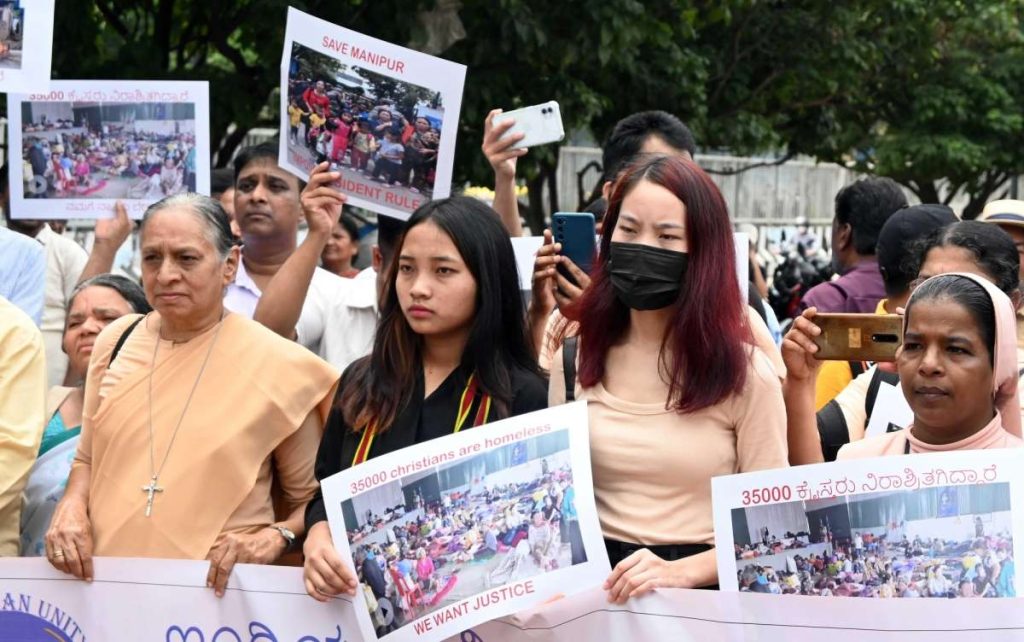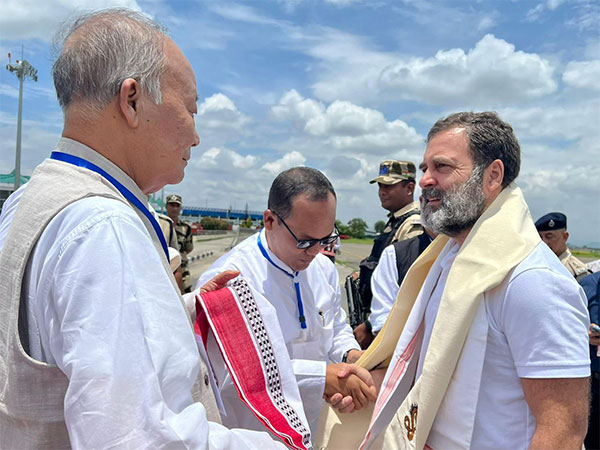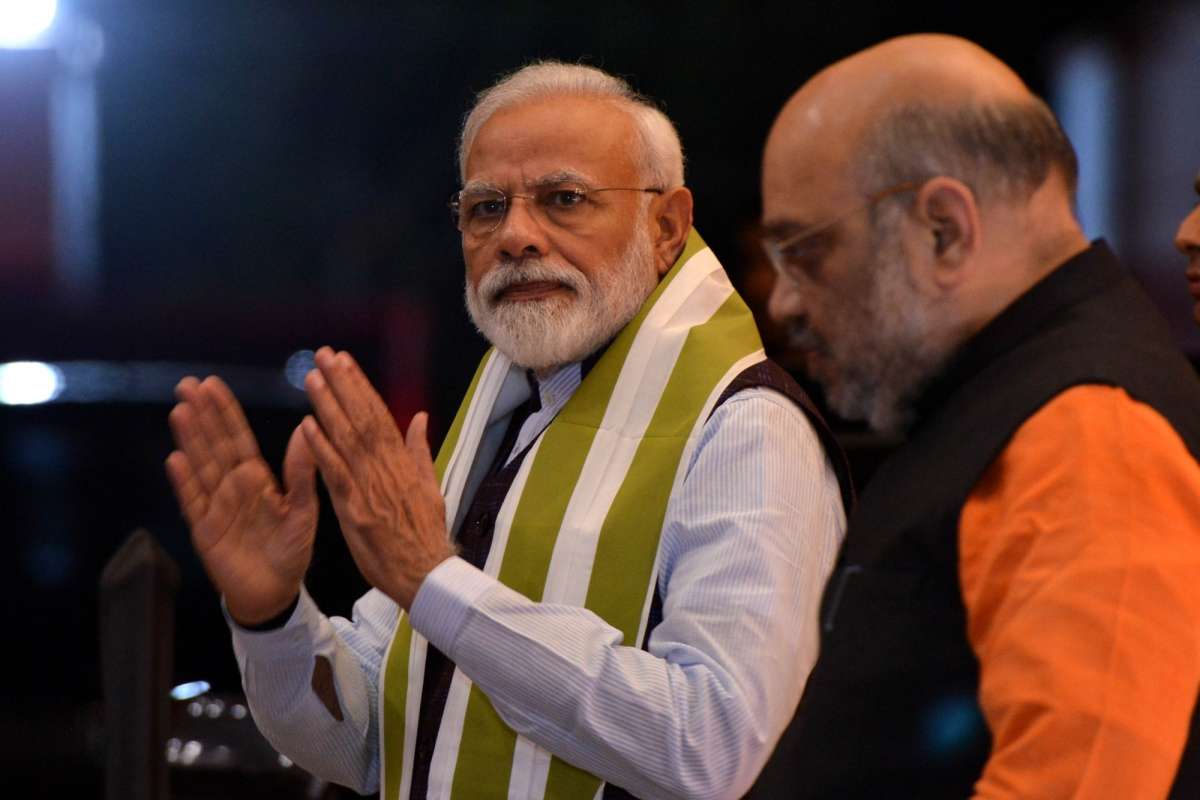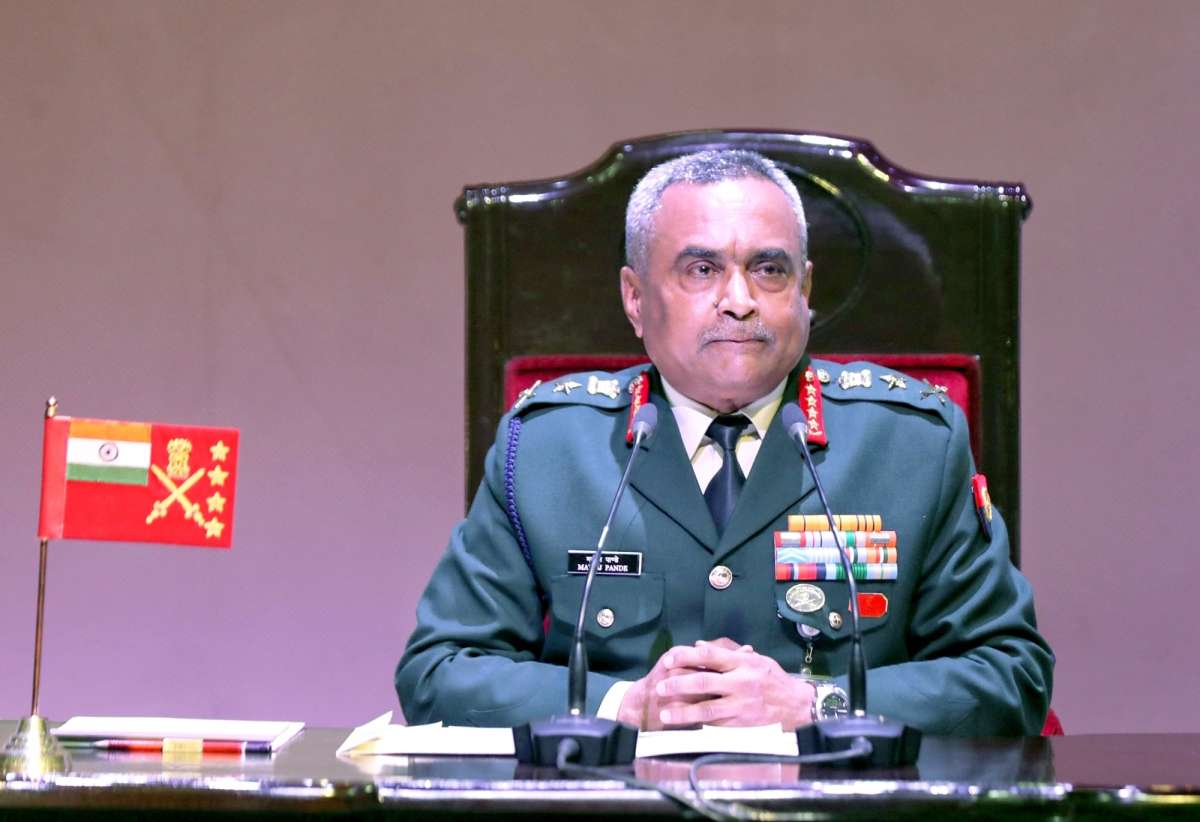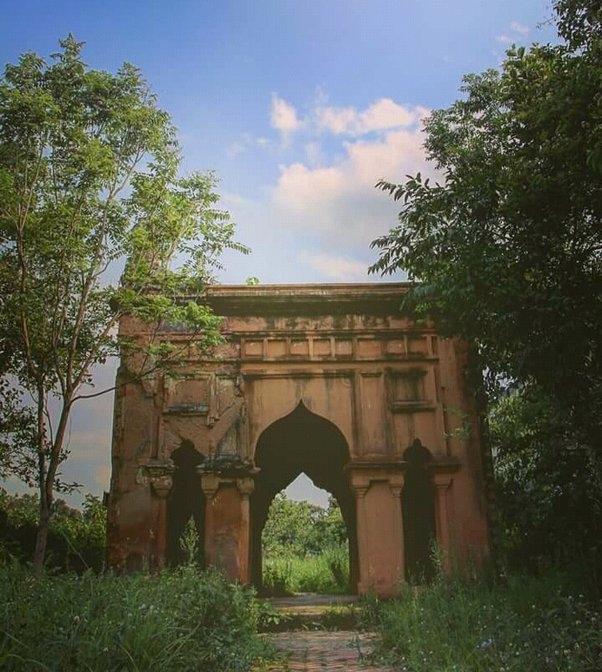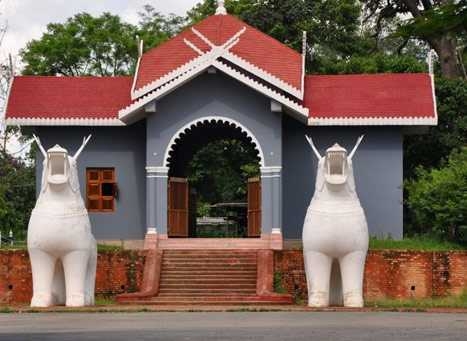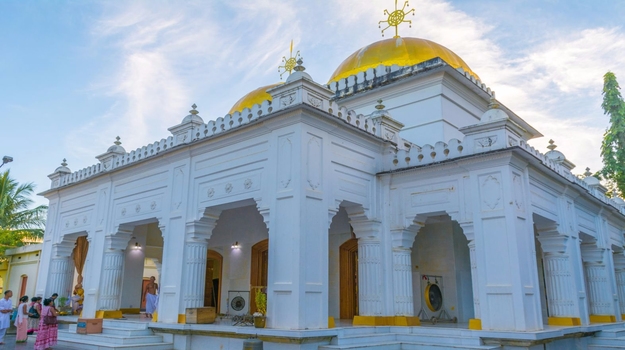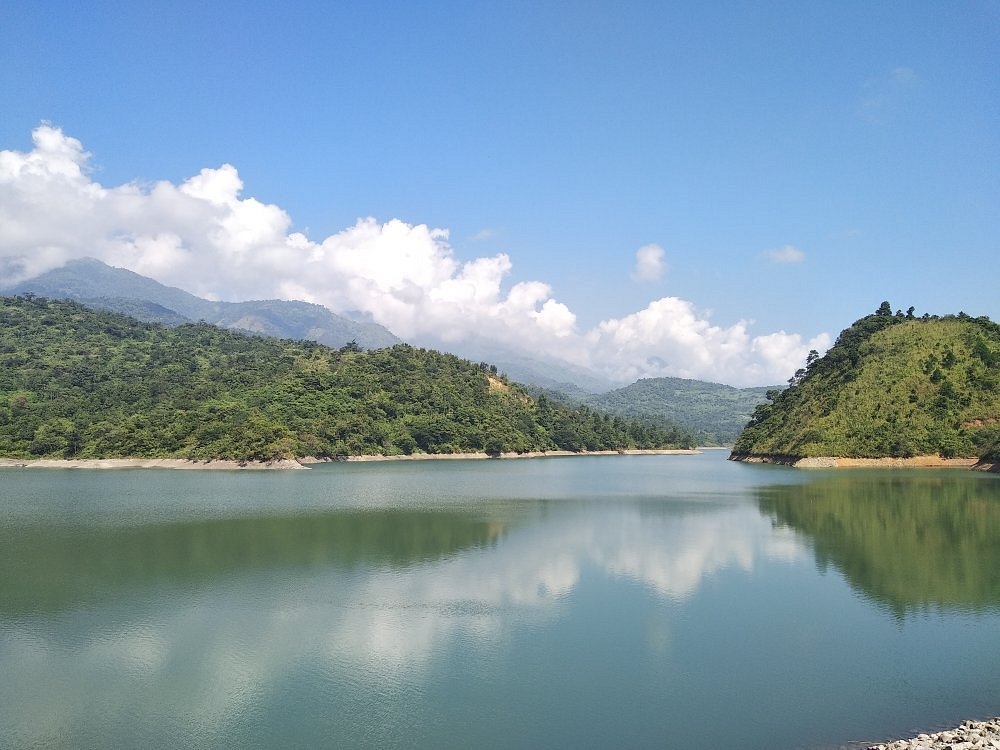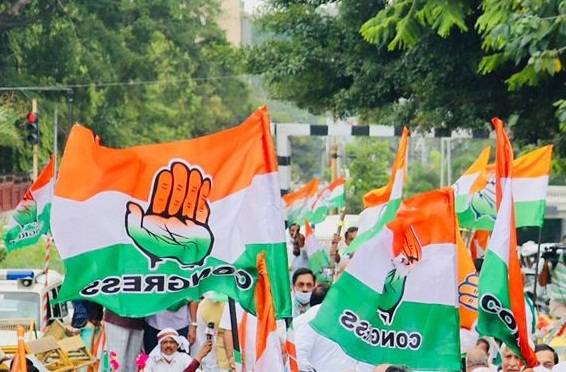The statement said that the horrifying ordeal suffered by these innocent women is amplified by the perpetrators’ decision to share the video, which shows the identity of the victims, on social media…reports Asian Lite News
Horrific videos of two young women being paraded naked on a road by a mob in Manipur have been widely circulated on social media, drawing widespread condemnation and demand for strictest actions.
The Indigenous Tribal Leaders’ Forum (ITLF) claimed that the two women were also gang-raped in a paddy field after being paraded naked on May 4, and demanded stern actions against the perpetrators.
Many political leaders, including Congress General Secretary Priyanka Gandhi Vadra, Tipra Motha Party (TMP) supremo Pradyot Bikram Manikya Deb Barman severely condemned the incident and demanded strict action.
Responding to the incident, Manipur Police, in a tweet, said: “All out effort to arrest culprits as regard to the viral video of 02 (two) women paraded naked: As regard to the viral video of 02 (two) women paraded naked by unknown armed miscreants on 4th May, 2023, a case of abduction, gangrape and murder etc was registered at Nongpok Sekmai PS (Thoubal District) against unknown armed miscreants and the investigation has been started. The State Police is making all-out effort to arrest the culprits at the earliest.”
The ITLF, in a strongly-worded statement, said that two and a half months into the ethnic conflict in Manipur, evidence of atrocities committed against Kuki-Zo tribals continue to surface.
“A video which went viral on Wednesday shows a large Meitei mob parading two Kuki-Zo tribal women naked toward a paddy field to be gang-raped. The despicable scene, which happened on May 4 in Kangpokpi district, shows the men constantly molesting the helpless women, who cry and plead with their captors,” ITLF spokesman Ginza Vualzong said in a statement.
He said that the gangrape of the women in B. Phainom village happened after the village was burnt down and two men – one middle-aged and another teenager – were brutally beaten to death by the mob.
The statement said that the horrifying ordeal suffered by these innocent women is amplified by the perpetrators’ decision to share the video, which shows the identity of the victims, on social media.
The ITLF vehemently condemns the sickening act and demands that the Central and state governments, the National Commission for Women, and the National Commission for Scheduled Tribes to take cognisance of the offense and take all necessary measures to bring justice to the culprits, the statement added.
Strongly condemning the incident, Priyanka Gandhi Vadra tweeted : “The pictures of sexual violence against women coming from Manipur are heart wrenching. The amount of condemnation of this horrific incident of violence against women is less. Women and children have to bear the maximum brunt of violence in the society. We must all condemn the violence in one voice while furthering the efforts for peace in Manipur. Why is the Central Government, Prime Minister sitting blindly on the violent incidents in Manipur? Do such pictures and violent incidents not disturb them ?”
Former Congress President Rahul Gandhi tweeted: “PM’s silence and inaction has led Manipur into anarchy. INDIA will not stay silent while the idea of India is being attacked in Manipur. We stand with the people of Manipur. Peace is the only way forward.”
TMP chief Deb Barman tweeted : “Disturbing videos emerging from Manipur about a woman belonging to a particular community being paraded naked by a mob . There is total breakdown in the relationships of the two communities there . Hate has won in Manipur.”
‘Absolutely heartbroken and appalled’
Tamil Nadu Chief Minister M. K. Stalin on Thursday said that he was absolutely heartbroken and appalled at the sight of two women paraded naked by a mob of men and later sexually assaulted.
Stalin in a tweet on his official handle said, “Absolutely heartbroken and appalled by the agonising violence unleashed on women in #Manipur. Where is our collective conscience ? The hate and venom are uprooting the very soul of humanity. We must stand united against such atrocities and work towards fostering a society of empathy and respect. The Union government should take all necessary steps to restore peace in Manipur.# Manipurviolence”.
The dastardly act had reportedly taken place on May 4 at B Phainom village in the Kangpokpi district of Manipur.
The DMK and its allies are aiming for a clean sweep in the ensuing Lok Sabha election of 2024 and the Chief Minister has already called upon party workers and leaders to win all the 39 seats from Tamil Nadu and the lone seat from the neighbouring Puducherry.
With a disunited opposition in Tamil Nadu, Stalin is expecting to rake up maximum issues that would put the Central government in a poor light, sources said.
The DMK think tanks are of the opinion that regular bombardment against the Central government led by BJP will have its effect in Tamil Nadu which is strongly defending the entry of the saffron party into the state.
Loksabha adjourned
The Lok Sabha was adjourned till July 21 amid protests by the Congress-led opposition, which sought a discussion on Manipur violence and also Prime Minister Narendra Modi’s response on the matter in the Lower House.
As soon as the Lower House convened at 2 p.m., the opposition members led by Congress, including DMK, Left and JD(U) entered the well of the House, shouting slogans “Manipur is burning!” and “PM come to the House!”
They sought Prime minister Narendra Modi’s response on Manipur violence in the Lok Sabha.
As Kirit Solanki, who was in the chair, allowed laying of papers, the opposition members raised slogans and created ruckus in the well.
Even NCP members and the lone newly elected AAP MP from Jalandhar Sushil Kumar Rinku could be seen standing near their seats, showing solidarity with other opposition members.
Parliamentary affairs minister Pralhad Joshi said that the government was ready to discuss Manipur issue in the House as and when the Speaker allots time and date. However amid continuous protests, Solanki adjourned the House for the day.
‘Incident can never be forgiven‘
Expressing his pain and anger over the Manipur incident, Prime Minister Narendra Modi on Thursday said the gruesome incident with the women in the Northeastern state is very shameful, and can never be forgiven.
“Today, my heart is filled with pain and anger. The incident of Manipur which has surfaced, for any civilised society, this is a very shameful incident,” Modi told reporters in the Parliament House Complex ahead of the beginning of the Monsoon Session, referring to the horrific video which went viral on social media, of two women being paraded naked in Manipur.
He said, “This incident is an insult for the entire nation as it has shamed 140 crore countrymen. The incident which happened with the women in Manipur can never be forgiven. I assure the countrymen that no one will be spared.”
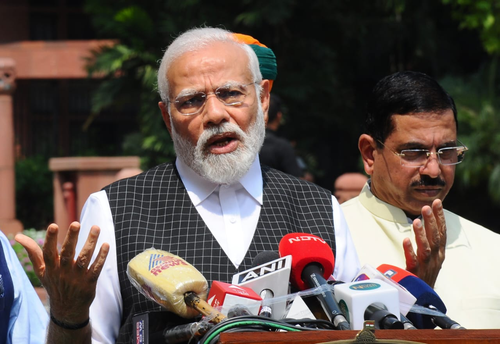
The Prime Minister also urged the Chief Ministers of the states to further strengthen the law and order situation in their respective states.
“I urge all the CMs to further strengthen law and order situation in their respective states, especially for the protection of mother and daughter, and take action against the perpetrators,” he said.
He added, “Whether the incident is of Rajasthan, Chhattisgarh, Manipur or any part of the country, rising above politics, the law and order is important.”
The Opposition has been slamming the BJP since the video went viral and questioned the law and order situation in the Northeastern state.
Prime Minister Modi also said that all the political parties should make the best use of this Monsoon session.
Bollywood demands justice
The recently surfaced video of two women belonging to the Kuki-Zomi community being paraded naked and being assaulted by a mob of men, has sent shockwaves across India. Bollywood superstar Akshay Kumar and director Vivek Agnihotri have strongly reacted to the video, condemning the “shameful” act.
Akshay Kumar took to his Twitter and shared a note saying that he feels shaken and disgusted to see such unspeakable cruelty being meted out to the women.
He tweeted: “Shaken, disgusted to see the video of violence against women in Manipur. I hope the culprits get such a harsh punishment that no one ever thinks of doing a horrifying thing like this again.”
Vivek Agnihotri, who is known for ‘The Kashmir Files’, took to his Instagram and shared a heartfelt note saying how the nation has failed as a society.
He wrote in his Instagram post: “MANIPUR: Moplah, Direct Action Day, Noakhali, Bangladesh, Punjab, Kashmir, Bengal, Kerala, Assam, Bastar and now Manipur. Every time our innocent mothers and sisters become the ultimate victims of inhuman, barbarian acts. As a Bharatiya, as a man, as a human being, I am shattered each time. I am ashamed.”
He further mentioned that he feels guilty for being helpless in such a situation and also wrote that there is “no right to life in free India.”
He continued: “I am so guilty for my helplessness. O Manipur, I tried… I tried… but I failed. All I can do now is tell their tragic stories through my work. But it’s too late by then. We are all victims of selective and hyper- competitive electoral politics. We are victims of hyper-religion. We are victims of dangerous media. We, the people of Bharat, are victims. There is no #RightToLife in free India. And we can’t do anything about it.”
“This is not the freedom I want. This is not the kind of democracy I want. It’s worth nothing if it makes us bay for each other’s blood. We are a failed society. I am sorry, my sisters. I am sorry, my mothers. I am sorry, Bharat Mata,” he added.
Soni Razdan wrote in her Instagram Story: “I really want to know what the government is going, and why primetime news is not flooded with news about Manipur and most important of all, where is the Army?”
Kiara Advani tweeted: “The video of violence against women in Manipur is horrifying and has shaken me to the core. I pray the women get justice at the earliest. Those responsible must face the most SEVERE punishment they deserve.”
Sanjay Dutt also took to his Twitter and wrote: “The video portraying violence against women in Manipur was shocking and sickening. My utmost hope is for the culprits to be punished with the utmost severity, sending a clear message that such despicable actions will not be tolerated in any circumstance.”
Actor Riteish Deshmukh too wrote on his Twitter: “Deeply disturbed with the visuals of the atrocities against the women in Manipur… I am seething with anger… no man should go unpunished for such crime. Attack on the dignity of a woman is an attack on humanity itself (sic).”
Actor-comedian Vir Das shared a series of tweet holding the government and the officials responsible for the shameful and the delay in bringing justice to the victims.
He wrote: “When horrific incidents occur make no mistake, through the system, our leaders are IMMEDIATELY aware. When months later videos go viral, twitter is aware. If leaders only then respond, it’s to twitter, not horrific incidents. They care about online outrage, not real people.”
He continued in his tweets: “People outrage as and when they become aware or are allowed to. It takes a specific kind of creepy man to invalidate a crime against a woman by offsetting it against the comparative outrage for another crime against another woman. It’s Masterful whataboutery. Don’t fall for it.”
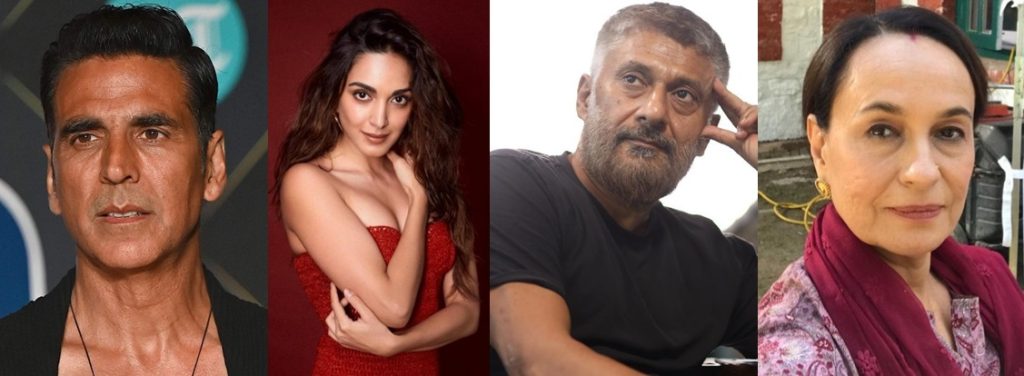
“Grateful to see our leadership speak up and take action for the viral people of India,” he added.
The video shows two women, one in her 20s and the other in her 40s, being made to walk naked down a road and towards a field by a mob of men. Some of the men can be seen dragging the two women towards a field and sexually assaulting them.
Though the said incident took place on May 4 as per the police, the video emerged on July 19 sparking massive outrage across the country.

